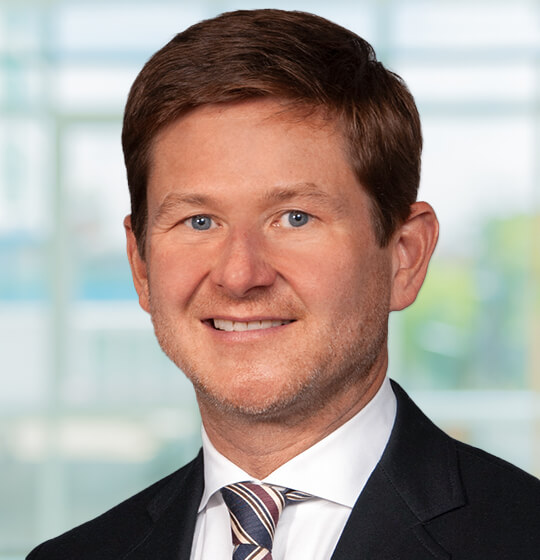Quick Hits
- The Eleventh Circuit granted a preliminary injunction to block a venture capital fund’s business grant contest for Black women-owned businesses.
- The majority rejected arguments that the Alliance lacked standing to challenge the contest on behalf of its members and found that the contest is “unlikely to enjoy First Amendment protection.”
- The ruling could provide an additional boost to claims challenging DEI programs amid a flurry of such new cases in the wake of the Supreme Court’s 2023 decision on race-conscious admissions in higher education.
On June 3, 2024, a panel for the Eleventh Circuit ruled 2-1 in American Alliance for Equal Rights v. Fearless Fund Management, LLC, to order a preliminary injunction blocking a grant contest for Black women-owned businesses by the venture capital fund the Fearless Fund.
The Eleventh Circuit majority ruled the contest is “substantially likely to violate” Section 1981, which prohibits private parties from racial discrimination in contracts. The appellate panel found that:
- a nonprofit membership group had standing to file suit on behalf of members who intended to but did not apply for the grant contest because they were excluded by the program’s terms;
- the contest constituted a contract under Section 1981 and “erects an ‘absolute bar’ to non-black applicants and thus fails to qualify for any remedial-program exception that might apply”; and
- the contest was not “expressive conduct” protected by the First Amendment of the U.S. Constitution.
The case marks another anti-DEI victory in a matter backed by an Edward Blum activist group, the Alliance, which is dedicated to “ending racial classifications and racial preferences in America.” Blum also backed the Students for Fair Admissions, Inc. v. Harvard College (SFFA) case, in which the Supreme Court of the United States held that certain race-conscious admissions policies in higher education were unconstitutional, as well as many highly publicized Section 1981 cases. Such challenges include some against certain law firm race-exclusive mentorship and scholarship programs, most of which the law firms have since changed to race-neutral programs.
Background
Fearless Fund, which seeks to invest “in women of color-led businesses” and “bridge the gap in venture capital funding for women of color,” offered a contest to provide four businesses with $20,000 in funding and mentorship support. According to the Eleventh Circuit decision, the contest was only open to “‘black females who are … legal U.S. residents’” or businesses that are at least 51 percent Black women-owned. Further, applicants had to agree to allow Fearless Fund to use their names, images, likenesses, and business ideas for promotional purposes and agree to arbitration, among other matters.
The Alliance filed a lawsuit alleging that it is a contract covered by Section 1981 and that the contest, by its terms, violates Section 1981 because it excludes non-Black applicants based on their race.
The case reached the Eleventh Circuit after a federal district court ruled that the Alliance had standing to bring suit but declined to issue a preliminary injunction, finding that the contest may be protected expressive conduct under the First Amendment.
Contract
The Eleventh Circuit majority agreed with the district court’s finding that the grant contest constituted a contract subject to Section 1981’s prohibition on intentional race discrimination in the enforcement of contracts. In doing so, the majority rejected Fearless Fund’s argument that its contest was “nothing more than a vehicle for conveying ‘discretionary gifts’ that confer ‘no enforceable rights on contest entrants.’” The majority stated that the permission to use the winning applicants’ business ideas and names, images, and likenesses and the arbitration agreements, in particular, rendered the contest a “bargained-for exchange supported by good and sufficient consideration.”
Remedial Measure
The majority rejected the argument that the contest qualifies as a remedial measure exempted from Section 1981. The Supreme Court has found that the exception applies to programs that address racial imbalances without creating an “absolute bar” for others. The Eleventh Circuit assumed without deciding that the exception extended to and applied to Section 1981, outside its more typical usage in employment discrimination claims under Title VII of the Civil Rights Act of 1964. The court stated that the Fearless Fund contest “unquestionably ‘create[s] an absolute bar’ to the advancement of non-black business owners” and the exception therefore did not apply.
Fearless Fund had argued that non-Black applicants can seek funding from other sources. However, the Eleventh Circuit majority stated that there is an argument that Fearless Fund may discriminate simply because of other prospective funders. The majority said that “[n]ot only is that position anathema to the principles that underlie all antidiscrimination provisions, it would, so far as we can tell, render … [the] ‘absolute bar’ caveat a nullity.”
First Amendment
Finally, the Eleventh Circuit majority disagreed with the district court’s finding that the contest may be protected by the First Amendment, noting that “the Supreme Court has continued to recognize and enforce the critical distinction between advocating race discrimination and practicing it.” (Emphasis in original).
The majority distinguished the Fearless Fund grant contest from the Supreme Court’s 2023 ruling in 303 Creative LLC v. Elenis. In that case, the Supreme Court held that a website designer with religious objections to same-sex marriage could legally refuse to create wedding websites for same-sex couples because her work was expressive speech protected by the First Amendment. The Eleventh Circuit majority noted that the designer, in that case, did not claim a right to refuse to serve LGBTQ+ individuals, just that she could not be compelled to create expressive speech “celebrating” same-sex marriage with which she disagreed.
On the other hand, in the Fearless Fund case, the fund “flatly” refused to take applications from non-Black female business owners. “If that refusal were deemed sufficiently ‘expressive’ to warrant protection under the Free Speech Clause, then so would be every act of race discrimination, no matter at whom it was directed,” the majority stated. (Emphasis in original.)
The majority was even more critical of defending such a contest that excluded non-Black applicants as protected “expressive conduct,” even if Fearless Fund sought to reflect a “commitment” to the business community of Black women-owned businesses. The majority stated that the same reasoning could be used in reverse to defend a business owner who fires all Black employees and retains all white employees to “telegraph[] his perspective on racial equality.”
“For better or worse, the First Amendment protects the owner’s right to harbor bigoted views, but it does not protect his mass firing. Fearless’s position—that the First Amendment protects a similarly categorial race-based exclusion—risks sowing the seeds of antidiscrimination law’s demise,” the majority stated. (Emphasis in original.)
Standing
While the majority ruled that the Alliance had standing under Article III of the U.S. Constitution to bring claims on behalf of pseudonymous potential applicants, Eleventh Circuit Judge Robin Rosenbaum filed a dissenting opinion arguing that the Alliance lacked such standing.
“Although three of American Alliance’s members pay lip service to the idea they are ‘ready and able’ to participate in Fearless’s Contest, their declarations show, in context, that none has a genuine interest in actually entering the Contest,” Judge Rosenbaum argued. “Indeed, not one has established that she is, in fact, able and ready to enter the Contest and would do so in the upcoming period if the Contest were open to non-Black women.”
Judge Rosenbaum pointed to a March 2024 ruling by the Second Circuit in which it found an organization lacked standing to bring claims that a company’s fellowship program for students and employees from Black, Latino, and Native American backgrounds unlawfully excluded white and Asian applicants on behalf of two “able and ready” applicants. The Second Circuit reasoned that declarations from the applicants on their intention to apply were insufficient to establish standing.
Like in that case, Judge Rosenbaum said the business owners challenging Fearless Fund’s grant contest “failed to show they had concrete plans to engage in the relevant conduct even if they could do so.” Judge Rosenbaum likened the situation to “flopping” in sports, where a player exaggerates or feigns contact or an injury to “manufacture a foul that the player hasn’t actually experienced to manipulate the referee into inappropriately exercising his power to award a penalty” in the player’s team’s favor.
However, the majority held that the Alliance had sufficiently identified members who were “able and ready” to enter the grant contest and who were “real-live, flesh-and-blood individuals who were excluded from the opportunity to compete in Fearless’s contest solely on account of the color of their skin.” (Emphasis in original).
Key Takeaways
The Eleventh Circuit’s ruling in Fearless Fund highlights the legal skepticism of programs that expressly exclude individuals based on race, regardless of whether the programs are sponsored by organizations that seek to address racial disparities or remediate historical discrimination. Notably, the majority ruling demonstrates that a group’s mission does not necessarily provide its programs with First Amendment protection from discrimination claims.
The Eleventh Circuit’s decision also highlights the breadth of the types of programs covered as contracts under Section 1981, regardless of simple verbiage changes, and that DEI programs that contain race exclusions are particularly vulnerable to challenges.
Moreover, the Eleventh Circuit’s holding regarding standing could open the door for more organizations to bring claims to members who are “able and ready” to participate in a program but are allegedly excluded based on race. Yet there are still some open questions over what is necessary for a party to be considered “able and ready” or to have been sufficiently injured to establish standing. Indeed, many corporations and organizations sued in anti-DEI cases have continued to prevail on theories of lack of standing.
For more information on DEI policies, initiatives, and strategies, including increased demands for inclusivity and belonging in the United States and globally, as well as challenges and litigation threats following the Supreme Court’s decision that race-conscious affirmative action admission policies violate the Equal Protection Clause and the Fourteenth Amendment, please see Ogletree Deakins’ “DEI Under Scrutiny” series, which examines the evolving DEI legal landscape since the Supreme Court’s decision and assists employers in balancing these concerns while moving forward with legally defensible programming and initiatives.
To assist employers with navigating these new challenges, Ogletree Deakins’ DEI Task Force—a multidisciplinary team of lawyers from our Diversity and Inclusion, Environmental, Social, and Governance (ESG), Litigation, OFCCP Compliance, Government Contracting, and Reporting, and Pay Equity practice groups—has developed a toolkit to assist with evaluating DEI initiatives, assessing legal risk, and providing recommendations and best practices. For more information, please contact the Ogletree attorney with whom you work or email clientservices@ogletree.com.
Ogletree Deakins will continue to monitor developments and will provide updates on the Diversity and Inclusion and Employment Law blogs as more information becomes available.
Follow and Subscribe








